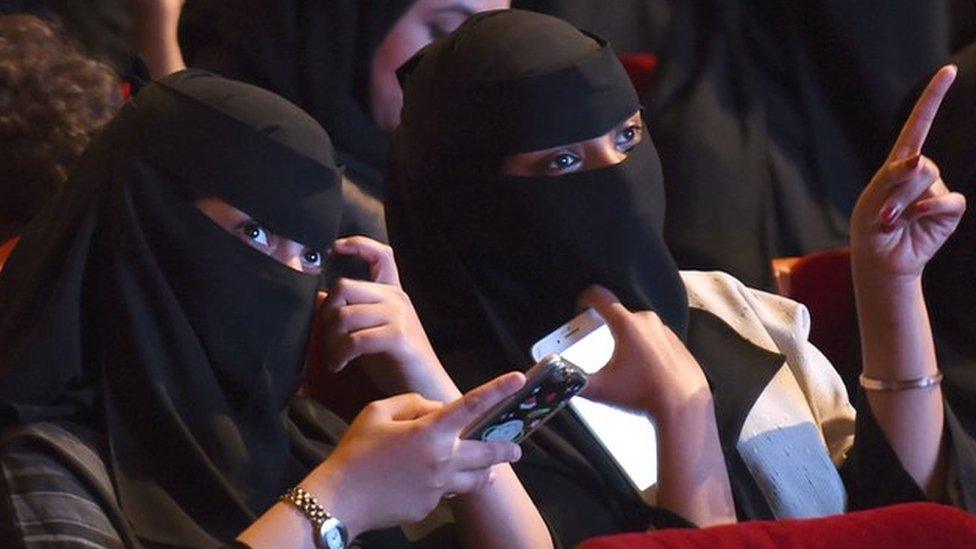Saudi Arabia issues first driving licences to women
- Published
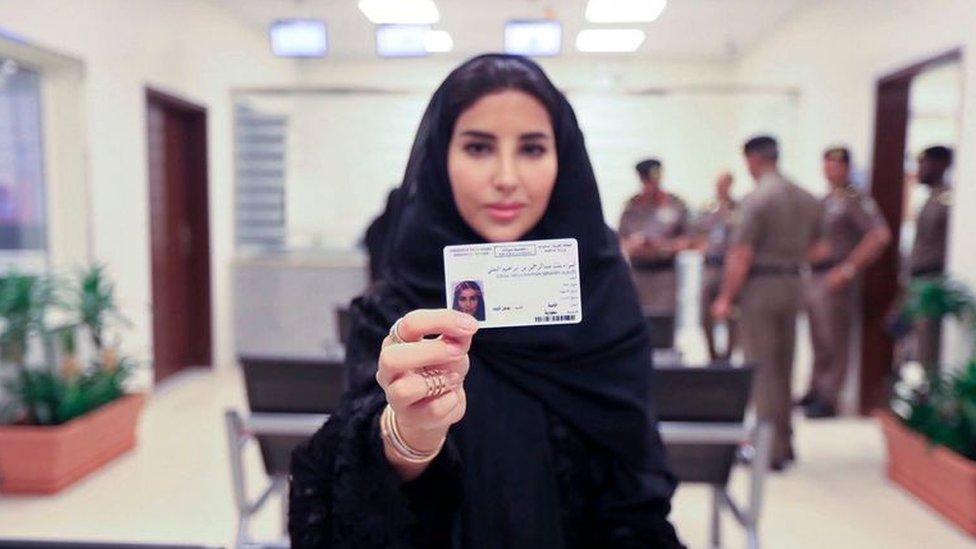
Saudi Arabia is the only country where women cannot drive legally
Saudi Arabia has issued driving licences to women for the first time in decades just weeks before a ban on female drivers is lifted.
Ten women swapped their foreign licences for Saudi ones on Monday in cities across the country.
However, women's rights activists have complained of a new crackdown - with several being arrested.
A flood of applications is now expected in the run-up to 24 June when the ban will end.
Saudi Arabia's laws require women to seek male permission for various decisions and actions, and that extends to the ban on women driving.
Saudi woman receives driving licence as the kingdom prepares to end its ban
Previously, that meant that families had to hire private drivers to transport female relatives.
But rights groups in the kingdom have campaigned for years to allow women to drive, and some women have been imprisoned for defying the rule.
Several activists, men and women, were arrested last month, accused of being "traitors" and working with foreign powers.
Loujain al-Hathloul, a well-known figure in the campaign for women's driving rights, was believed to be one of those held.
Rights group Amnesty International described the arrests as "blatant intimidation tactics". On Sunday, Saudi prosecutors said 17 people in total had been detained, but said eight had been released "temporarily".
Ms Hathloul has been detained previously, including once in 2014 when she attempted to drive across the border from the United Arab Emirates. She served 73 days at a juvenile detention centre as a result, and documented many of her experiences on Twitter.
'A dream come true'
"Expectations are that next week an additional 2,000 women will join the ranks of licensed drivers in the kingdom," a statement from the Saudi information ministry said.
It added that the 10 women who had collected their new Saudi licences had "made history".
"It's a dream come true that I am about to drive in the kingdom," Rema Jawdat, who received a licence, was quoted as saying by the ministry.
"Driving to me represents having a choice - the choice of independent movement. Now we have that option."
The lifting of the driving ban was announced last September and is part of Crown Prince Mohammed bin Salman's programme to modernise some aspects of Saudi society.
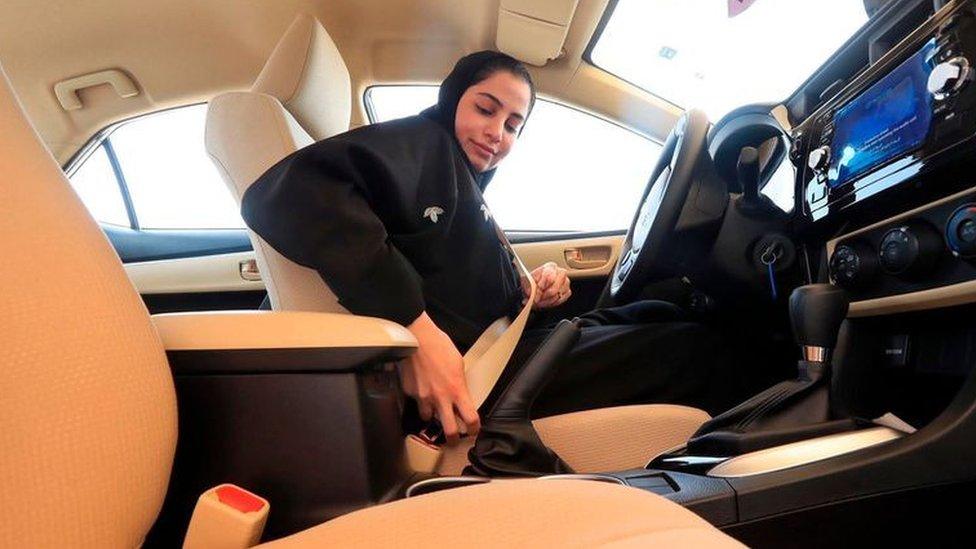
A woman buckles her seatbelt before doing a driving test
He has spearheaded the Vision 2030 programme to diversify the economy away from oil and open up Saudi society.
But there are still limits on what Saudi women can do.
Saudi law enforces a strict form of Sunni Islam known as Wahhabism and is known for its gender segregation rules.
Women have to adhere to strict dress codes, must not associate with unrelated men, and if they want to travel, work or access healthcare they must be accompanied by - or receive written permission from - a male guardian.
- Published27 September 2017
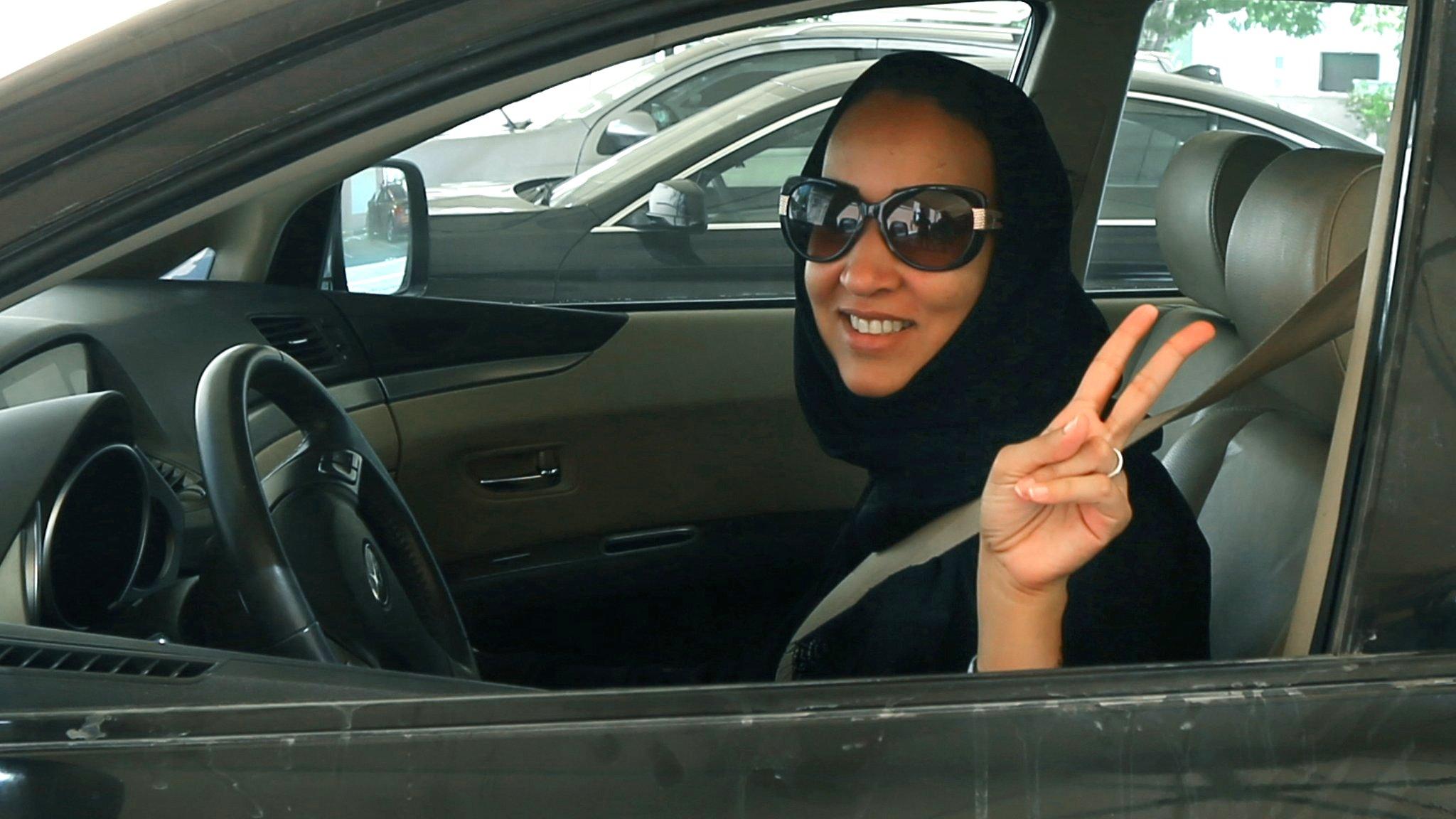
- Published16 May 2018

- Published23 May 2018
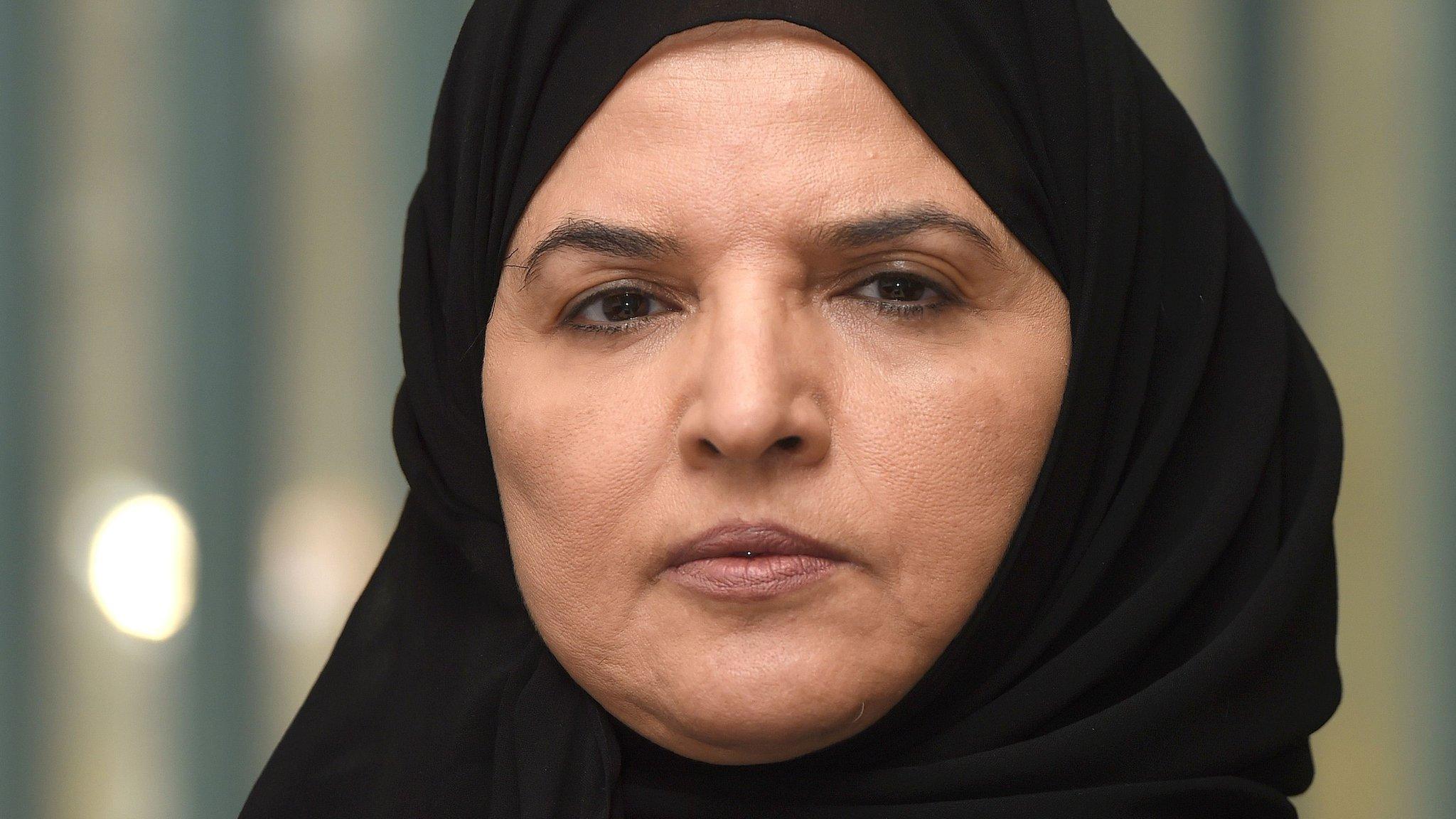
- Published2 June 2018

- Published27 September 2017
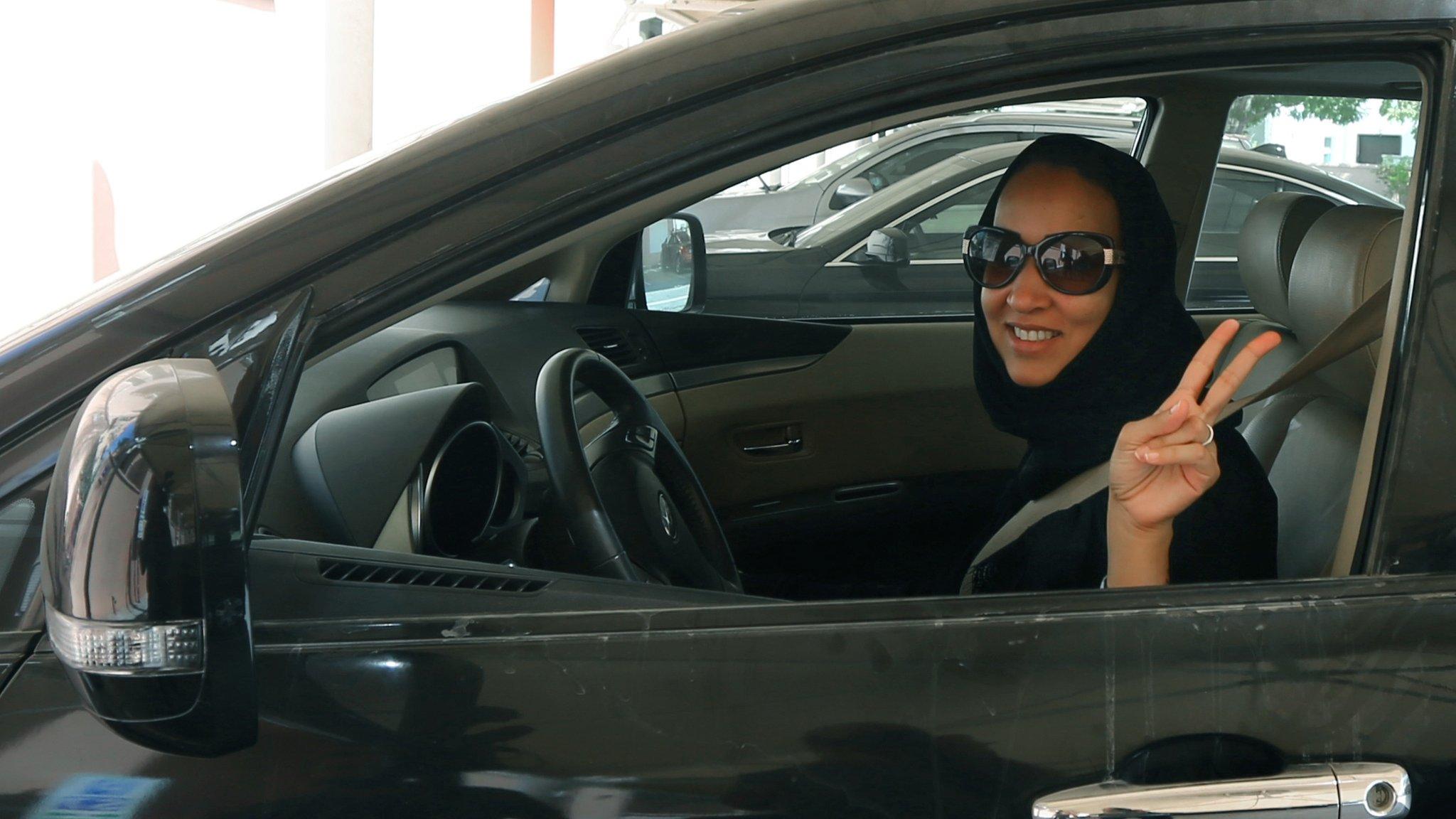
- Published27 September 2017
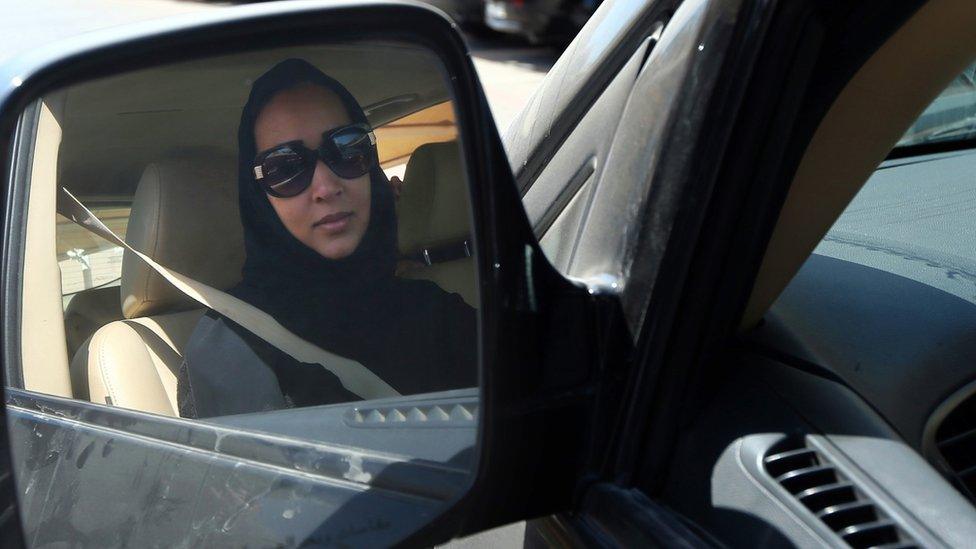
- Published17 April 2018
